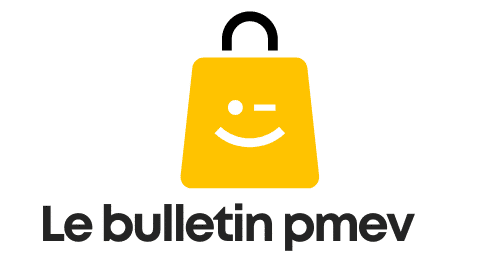How Do Peer-to-Peer Health Education Programs Influence Teen Sexual Health?

Teenage years are a crucial phase of life, marked by significant physical, emotional, and social changes. Among these transformations, the emergence of sexual feelings and desires is a natural and healthy part of growing up. However, these changes can also bring challenges and questions that the young people may not know how to deal with, particularly regarding sexual health. In this context, peer-to-peer health education programs have emerged as impactful interventions for fostering healthy sexual behaviors and attitudes among youth. This article delves into this topic, exploring how such programs can influence teen sexual health, based on various studies and research.
The Role of Peer Education in Health Promotion
Peer education is a potent tool in health promotion, especially in the field of sexual health. In such programs, trained individuals of the same age group impart health-related knowledge and skills to their peers. They use their shared social characteristics, language, and experiences to engage others effectively.
Sujet a lire : Does Guided Imagery Provide Effective Pain Relief in Palliative Care Patients?
Studies suggest that peers can be more effective than adults in communicating with young people about sensitive topics like sex. According to a post on Google Scholar, teenagers are more likely to listen to and engage in discussions with people their own age. They can identify with their experiences and understand their language better. This familiarity can help break down barriers and foster open and honest discussions about sexual health.
Impact on Knowledge and Attitudes
Peer-to-peer health education programs can significantly enhance teenagers’ knowledge about sexual health. These programs often cover a range of topics, including reproductive anatomy, birth control options, sexually transmitted infections (STIs), and consent. A study published on PubMed revealed that students who participated in peer-led sexual health education had more accurate knowledge about these topics than their counterparts who received traditional school-based sex education.
Sujet a lire : Can Intensive Computer-Based Brain Training Reduce the Risk of Dementia in the Elderly?
In addition to increasing knowledge, peer education programs can also shape attitudes towards sexual health. They can help dispel myths and misconceptions, promote positive attitudes towards safe sex, and encourage respect for personal and others’ boundaries.
Fostering Healthy Behaviors
Education is not just about imparting knowledge; it’s also about promoting healthy behaviors. This is particularly important when it comes to sexual health. Peer education interventions can influence teenagers’ sexual behavior in several ways.
For instance, they can encourage teenagers to delay sexual initiation until they are ready, both emotionally and physically. They can also promote the use of contraceptives among sexually active teenagers, thereby reducing the risk of unwanted pregnancies and STIs. Furthermore, they can empower young people to make informed decisions about their sexual health and to communicate effectively with their partners.
The Role of Online Peer Education
In the age of digital technology, online platforms have become a significant part of peer education interventions. Teenagers today are digital natives who spend a significant amount of their time online. They use the internet not just for entertainment, but also for seeking information, including about sexual health.
Online peer education can leverage this digital affinity to reach out to a broader audience. Platforms like Google, social media sites, and online forums can let young people discuss sexual health issues comfortably and anonymously. This can be particularly beneficial for those who may not feel comfortable discussing these issues in a face-to-face setting.
Challenges and Future Directions
While peer education programs hold promise, they are not without challenges. One of the main challenges is ensuring the quality and accuracy of the information shared by peer educators. This requires providing them with proper training and support.
Another challenge is the cultural and social sensitivities around discussions on sex. Some communities may resist these programs, believing they promote sexual activity among teenagers. Engaging parents and community leaders can help address these concerns and ensure the successful implementation of these programs.
Despite these challenges, the potential benefits of peer-to-peer health education programs for teen sexual health are immense. As we move forward, it’s crucial to continue studying and developing these programs to maximize their positive impact on our youth’s sexual health. As the saying goes, "Knowledge is power," and this is particularly true when it comes to sexual health. By empowering our youth with the right knowledge and skills, we can help them navigate their sexual development healthily and responsibly.
The Power of Peer Influence in Promoting Sexual Health
The power of peer influence is a significant element to consider in teenage health education. This influence is even more potent when it comes to sensitive topics such as sexual health. The findings from a study on Google Scholar highlight that young people are more likely to open up and engage in discussions with their peers about these issues. The shared experiences and language of their age group make these discussions more relatable and less intimidating.
Peer education programs take advantage of this peer influence. These programs train young people to impart relevant knowledge and skills to their peers. The information passed along includes comprehensive sex education, reproductive health, and the importance of consent. PubMed Google contains a study revealing that these peer-led programs enhance teenagers’ knowledge in these areas compared to the conventional school-based sex education.
Moreover, these programs extend beyond just imparting knowledge. They also shape attitudes towards sexual health. Through these peer discussions, misconceptions are dispelled, attitudes towards safe sex are promoted, and respect for personal boundaries is enforced. In this way, peer education programs serve as a powerful tool for health promotion among teenagers.
Moving Forward: The Future of Peer-to-Peer Health Education Programs
Despite the promising potential of peer-to-peer health education programs, challenges remain. One of the key concerns is the quality and accuracy of the information shared by peer educators. This concern necessitates the provision of proper training and support to these educators.
Cultural and social sensitivities are another hurdle to these programs. Some communities may resist these initiatives, fearing they might encourage sexual activity among teenagers. To address this, it is crucial to engage with parents and community leaders to clarify the intention and benefits of these programs.
Public health professionals and researchers need to continue studying and refining these programs. The article on PubMed underlines the importance of a comprehensive sex education curriculum that is peer-led. Such a curriculum can help to ensure that teenagers receive accurate and relevant information about sexual health.
The future of peer-to-peer health education interventions looks promising. The digital transformation has opened new opportunities for delivering these programs. Online platforms, such as social media and forums, can provide a comfortable and anonymous space for young people to discuss sexual health.
In conclusion, the role of peer education in promoting sexual health among teenagers is immense. The power of peer influence, combined with the right knowledge and attitudes, can empower teenagers to make informed decisions about their sexual health. Despite the challenges, the potential benefits of these programs are worth the effort. As the saying goes, "Knowledge is power". This phrase holds particularly true for sexual health. By equipping our young people with this power, we can help them navigate their sexual development in a healthy and responsible manner.
